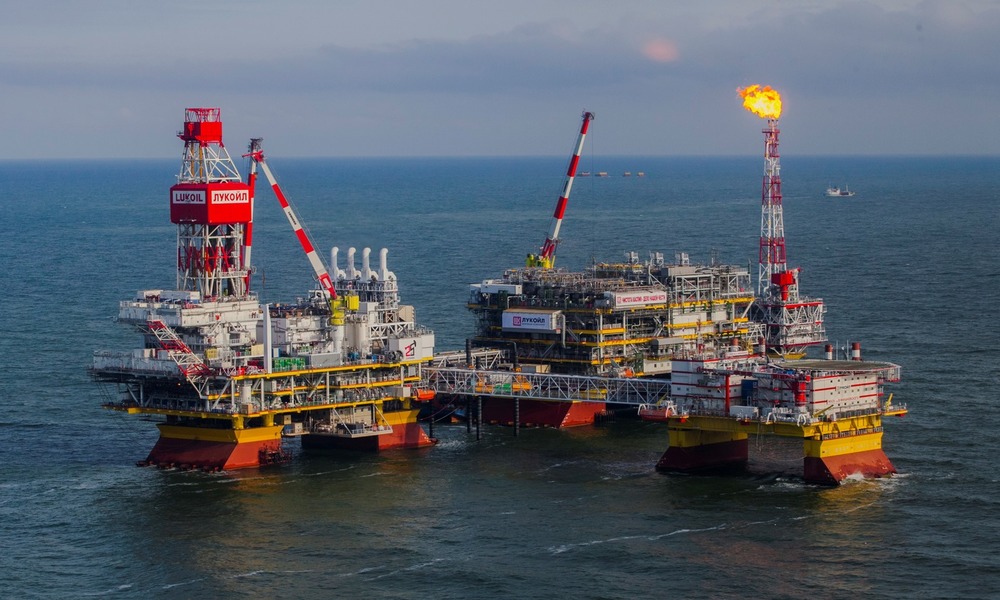RUSSIA MONITOR
Date: 23 January 2019
Russia’s In No Rush to Reduce Oil Output
Moscow is doing its utmost to take advantage of the current status in the OPEC+ while hoping to gain maximum profits from selling crude oil. When other countries rush to reduce their oil output, aiming to raise global prices, Russian firms have no intention to cut production rapidly, thus earning money at the expense of their partners. Such a state of affairs was not warmly welcomed by the organization’s members, as evidenced by a recent statement of Energy Minister of Saudi Arabia, Russia’s key partner in OPEC+.

Russia seeks to cut its oil output as part of a new OPEC+ deal while making an attempt to slow it down. Bt the end of January, it is expected to achieve one-fifth of the decrease in overall oil production. Russian Energy Minister Alexander Novak informed that the state’s oil production had fallen by more than 30,000 bpd compared to October’s level. Russia-based oil companies promised to cut production by 50,000 bpd by the end of January. Russia undertook to reduce its production by 228,000 barrels per day (bpd) until the end of the first quarter of 2019. Russian output baseline figures of 11,418,000 bpd date back to October 2018 while two months later, state oil companies managed to break another post-Soviet record of 11,450,000 bpd before they made a final decision to lower oil output at the beginning of this year. Russia’s slow pace in cutting production was sharply criticized by its main OPEC+ allies. According to Saudi Energy Minister Khalid al-Falih, Russia was cutting its oil production more slowly than expected.
Under the OPEC+ deal, Russia was allowed to make the cuts gradually since the harsh climate and complex geology of Siberia, which are to prevent oil production from being rapidly reduced. In its turn, Saudi Arabia has announced that it had already implemented all obligations to limit oil extraction. Compared to cuts introduced by some of its partners, Russia’s reduction commitments seem rather modest. Back in December, which is before restrictions formally came into force, oil output in OPEC countries dropped by 530,000 bpd. OPEC and their non-OPEC allies determined to slash production by a combined of 1,200,000 bpd by the end of June. Even though Brent hit more than 60 dollars per barrel following the decision to curb output, the result was still some 30 percent less compared to the four-year record that was broken in early October 2018.
At the end of 2016, Russia entered into cooperation with Saudi Arabia, hoping to stabilize the level of oil prices at that time. In addition, Moscow tends to signal its satisfaction with the total price of 60 dollars per barrel. On January 18, OPEC published a list of OPEC+ countries that had jointly agreed to cut oil output, informing how many barrels they intend to reduce. In a line with the document, 21 countries, including 11 OPEC members and 10 their non-OPEC allies, are committed to lowering oil production by 1,195,000 bpd in the first six months of 2019, maintaining extraction level at some 43,874,000 bpd. OPEC member states are jointly to reduce output by 812,000 bpd to 25,937,000 bpd while non-OPEC oil producers – by 383,000 bpd to 17,937,000 bpd. Saudi Arabia, OPEC’s leading state, will curb production by 322,000 barrels, from 10,633,000 bpd in October 2018 to 10,311,000 bpd in late June 2019. Among all non-OPEC states, Russia is to significantly reduce output by 230,000 bpd – to 11,191,000 barrels. Only Iran, Venezuela and Libya were given exemption from the agreement. Among OPEC’s partners are such countries as Russia, Azerbaijan, Bahrain, Brunei, Kazakhstan, Malaysia, Mexico, Oman, Sudan, and South Sudan. The next meeting of the Joint Committee of Ministers on monitoring the implementation of the transaction within OPEC+ is scheduled to be held on March 18 in the Azeri capital of Baku.
All texts published by the Warsaw Institute Foundation may be disseminated on the condition that their origin is credited. Images may not be used without permission.














